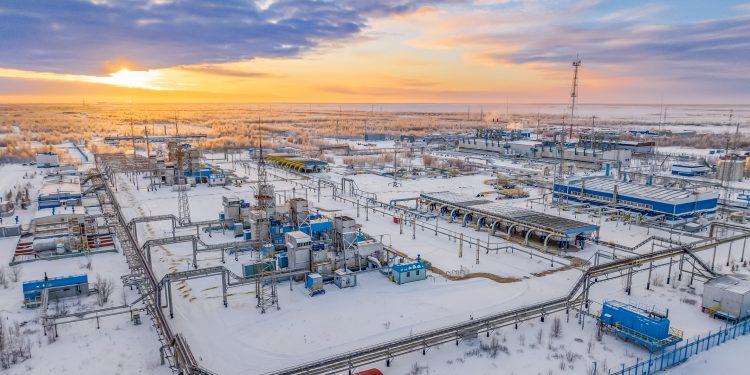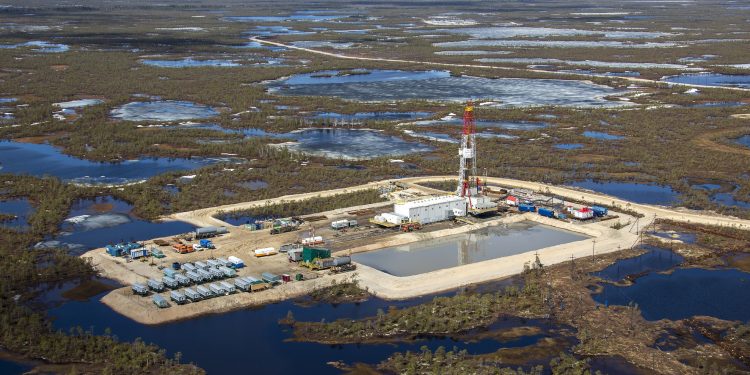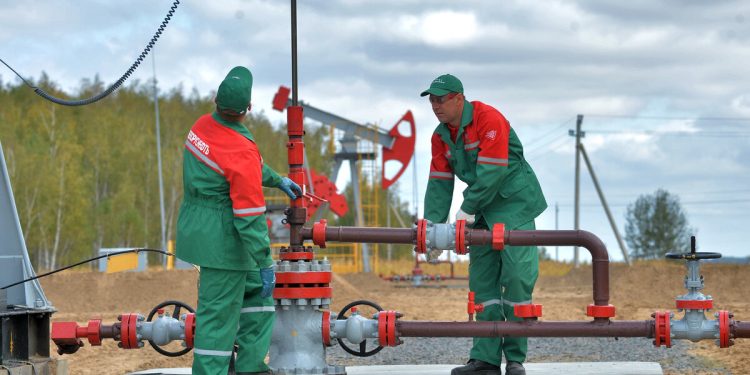
Gazprom Neft Develops Technologies for Cost-Effective Development of Hard-to-Recover Hydrocarbon Reserves
Gazprom Neft, as part of the federal project “Technologies for the Development of Hard-to-Recover Hydrocarbons”, has developed a set of solutions that will make it possible to bring up to 9 billion tonnes of “hard” oil into production in Russia. The results of the program were presented to Alexander Novak, …

Novatek May Tap Additional Gas Volumes from Deep Horizons of Nadym-Pur-Taz Region Within 3–5 Years if Tax Burden Is Reduced
Novatek could begin developing additional reserves from deep horizons of the Nadym-Pur-Taz region (Yamalo-Nenets Autonomous Okrug) within three to five years. This was stated by Ekaterina Galyan, Director of the Subsoil Use and Resource Base Management Department at the company, during the “Hard-to-Recover Reserves – Present and Future” conference. At …

Gas Production in the Russian Federation May Halve by 2040 Without Hard-to-Recover Reserves
Reserves, Including Offshore Fields, Gas Production in the Russian Federation May Decline by Nearly Half by 2040. Recoverable gas reserves are being depleted, and without the development of hard-to-recover reserves, including offshore fields, gas production in the Russian Federation could decrease by nearly fifty percent by 2040. This data was …

The Ministry of Natural Resources of the Russian Federation Has Commented on the Profitability of Oil Reserves in the Country
Only 13 billion out of 31 billion metric tons of oil reserves in the Russian Federation are considered economically viable, while the majority are hard-to-recover reserves, and at the current production rate, the total reserves will last for 26 years, according to Alexander Kozlov, the Minister of Natural Resources and …

Gazprom Neft Will Continue to Advocate for Tax Incentives for the Development of Hard-to-Recover Reserves
By the year 2030, more than half of new oil production in the Russian Federation will come from hard-to-recover reserves, which require adjustments to the tax regime to encourage their development. This was stated by Alexander Dyukov, Chief Executive Officer of Gazprom Neft. In mid-April, the Government of the Russian …

Gazprom Neft: More Than Half of New Oil Production in the Russian Federation Will Come from Hard-to-Recover Reserves
By the year 2030, more than half of crude oil production in the Russian Federation will come from hard-to-recover reserves, which means that large-scale development of these resources will require adjustments to the tax regime and state support for technological innovation, according to Alexander Dyukov, Chief Executive Officer of Gazprom …

Russia’s Existing Gas Projects Will Supply No More Than 60% of Production by 2050
The current state of gas field development in Russia shows that 70% of actively producing reserves have already been extracted, according to Igor Shpurov, Head of the State Commission on Mineral Reserves (GKZ). While Russia’s overall gas reserve life stands at 102 years, the remaining operational life of currently active …

Gazprom Neft Called for Further Expansion of the Tax Regime of the AIT
Gazprom Neft stands for further expansion of the additional income tax regime, this will improve the economics of oil production projects, the head of the company Alexander Dyukov told reporters on the sidelines of the WEF. “The AIT is an excellent tax tool that has already proven to be highly …

In Ugra, It Was Proposed to Introduce Benefits for Exploration and Production of Hard-to-Recover Oil
According to the Federal Agency for Subsoil Use, in Russia over the past nine years, the volume of hard-to-recover oil reserves (TRIZ) has increased by 3.8 billion tons, an annual increase of three percent on average. In Western Siberia, 37 percent of the resources belong to this category. In the …

Belorusneft Intends to Produce at Least Two Million Tons of Black Gold in 2025
According to the CEO, in 2024, production is expected to be at least 1 million 930 thousand tons. Already in January–August, this figure amounted to 1 million 278 thousand tons plus the same period in 2023. “These are quite serious results for our region, they exceed the level planned for …
